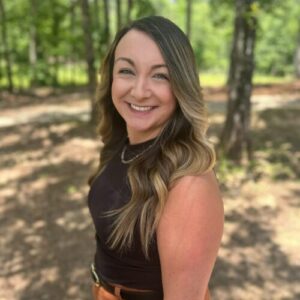In a world that constantly tells us to be smaller, thinner, and “better,” it’s easy to see why so many individuals turn to diet pills, laxatives, and weight-loss supplements in search of quick answers. These products are often marketed as harmless shortcuts to a slimmer body. But beneath the shiny, unrealistic promises, there are real and sometimes life-threatening risks.
For countless people, the desire to lose weight isn’t just about appearance; it’s tangled up with feelings of self-worth, control, and belonging. This is especially true for people living with eating disorders, who may already feel trapped in a cycle of harmful thoughts and behaviors. Diet pills and laxatives don’t break that cycle; instead, they can deepen it, putting mental and physical health at further risk.
Science is clear: these products can cause serious damage to the body, trigger dangerous side effects, and reinforce the very patterns that make eating disorders so hard to escape. But there is hope for healing, and understanding the real risks is an important first step toward protecting yourself and those you care about.
The Rise of Dangerous Diet Products + Social Media
Diet pills and weight loss supplements are easier to advertise and buy than ever before, and young people, especially adolescents, are falling victim to their damaging messaging and potential health effects. A 2024 meta-analysis published in JAMA Network Open examined 90 studies involving 604,552 adolescents worldwide. It found that nearly 1 in 10 adolescents, especially girls, reported using non-prescribed weight-loss products like diet pills, laxatives, or diuretics in the previous month1.
The rise of social media and influencer culture has contributed to numerous dangerous weight loss trends, including the use of unregulated supplements and pills.
Influencer marketing in dietary supplements exploded from $1.7 billion in 2016 to $13.8 billion in 2021, reflecting a massive cultural shift. Influencers often promote diet pills and supplements as easy, “harmless” solutions for weight loss, sometimes without disclosing that they’re paid to do so. The same study from JAMA Network Open found that sponsored weight-loss content is rampant and often lacks any scientific backing or safety information1.
Because young people tend to trust influencers more than traditional advertising, these promotions feel authentic and persuasive, even if the products are unregulated or dangerous.
Diet Pills and Eating Disorders: A Dangerous Cycle
Individuals struggling with body image and food may be especially vulnerable to the predatory, exploitative messaging of weight loss pills and supplements.
According to a study published in the Journal of Adolescent Health, nearly one-third of teenage girls who use unhealthy weight control behaviors, like diet pills and laxatives, go on to develop full-blown eating disorders2. This highlights just how closely diet pill use is tied to the development and worsening of disordered eating.
Among people already struggling with an eating disorder, weight loss products can make their symptoms worse. A 2020 meta-analysis in the International Journal of Eating Disorders found that over 35% of people with bulimia nervosa regularly misuse diet pills and laxatives to purge calories2.
The use of diet pills and weight loss supplements can intensify a range of harmful eating disorder behaviors, including excessive exercise, self-starvation, or binge-purge cycles. This can worsen malnutrition, dehydration, and electrolyte imbalances — the already-dangerous physical side effects of disordered eating.
The hidden ingredients you may not know about
Most diet pills and supplements are not regulated by the FDA in the same way that prescription medications are. This means that products can contain hidden ingredients that are dangerous or even banned from use.
For example, a study in the Journal of the American Medical Association found that 67% of weight loss supplements tested contained unapproved pharmaceutical ingredients that could cause heart attacks, strokes, or psychiatric symptoms3. These hidden dangers can be especially harmful for people already struggling with malnutrition or illness due to restrictive eating and frequent purging.
Laxative misuse: a common but dangerous practice
In addition to diet pills, laxatives are commonly misused by people with eating disorders to purge after eating or as a way to speed up weight loss. Research shows that up to 75% of individuals with bulimia have misused laxatives as part of their purging behaviors4.
The belief that laxatives can be used to lose weight is a dangerous misconception; in reality, they cause temporary water loss, and they can lead to severe dehydration if fluids aren’t replaced. More importantly, laxatives can permanently damage the digestive system when they’re consistently misused. Chronic laxative abuse can lead to dependency, severe dehydration, colon damage, and life-threatening electrolyte imbalances.
The Toll on Mental Health + Body Image
Beyond the physical risks, diet pills and laxatives can deepen the psychological grip of an eating disorder.
Diet pills and weight-loss supplements feed the belief that weight loss should be pursued at any cost, and the toll to your physical or mental health is worth it if you can achieve the “desirable” or “ideal” body type. For someone struggling with an eating disorder, this can reinforce the belief that the body must be constantly “fixed” or controlled, instead of cared for and nourished.
When the quick results of pills and supplements don’t last (which they rarely do), individuals may blame themselves and double down on dangerous weight loss measures, like more extreme food restriction, increasing laxative misuse, or combining multiple harmful products. This cycle often leads to more rigid thinking and feelings of guilt and shame, which are key drivers of disordered eating.
Forging a Healthier Path Forward
If you or someone you care about is misusing diet pills or laxatives, please know that you are not alone. There is hope for healing and freeing yourself from the cycle of disordered eating.
In comprehensive eating disorder treatment, therapists, dietitians, and doctors work together to help an individual understand why they feel driven to use dangerous products in pursuit of weight loss. This treatment recognizes that using diet pills, laxatives, or weight loss supplements isn’t really about the pills; it’s about deeper emotional pain, trauma, distorted body image, or the need for control and relief.
By working through the root causes of an eating disorder in specialized therapy, people can learn healthier ways to cope and begin healing the physical and emotional damage their illness has caused. Throughout the process, they work toward establishing a new foundation for their relationship with body image and food.
Magnolia Creek is dually licensed to treat eating disorders and a multitude of co-occurring disorders. We tailor our treatment plans to individual needs and goals while empowering every client in our care to embrace recovery with resilience and independence.
Sources
- Ganson, K.T., et al. (2024). Adolescent Use of Weight-Loss Products. JAMA Network Open, 7(1): e2345678.
Field AE et al. Use of weight control behaviors among adolescents. J Adolesc Health, Vol 52.
Cohen PA et al. Hidden pharmaceutical ingredients in weight-loss supplements. JAMA Netw Open, Vol 1.
Mitchell JE et al. Laxative abuse in eating disorders: Prevalence and complications. Addict Behav, Vol 32.















































